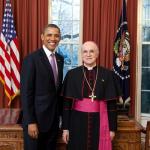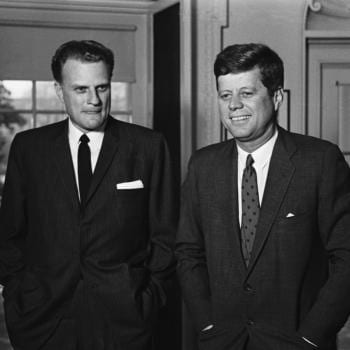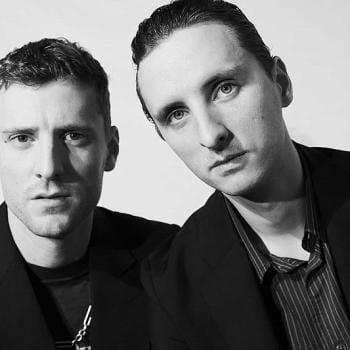An editorial at Commonweal Magazine responds to Damon Linker’s exit from the Roman Catholic Church in the wake of the current scandal of sexual abuse and its cover up. Here is how Paul Baumann puts it:
Linker predicts that this latest “tsunami of scandal” will propel many more Catholics out the church door. Probably he’s right. It would be good, however, if we uncovered the facts before we pronounce judgment. There is also an implicit challenge in Linker’s essay for anyone who decides not to leave. How can we justify staying? I think the answer is similar to the one you might give when asked to justify allegiance to the United States of America, a nation founded as a slave state and established by the virtual annihilation of its native population, a country that killed several million Vietnamese in an unprovoked and unjust war and now threatens the peace of the entire world by putting nuclear weapons in the hands of a clearly repulsive and disturbed individual. You remain because, despite the nation’s manifold sins, you still want to believe in the truth of the propositions put forth in the Declaration of Independence, the Constitution, and the Gettysburg Address. You stay in the church, despite its sins, because you long for what it proposes about the nature and destiny of human life to be true as well.
This is arguably a helpful analogy since plenty of Americans these days would prefer to believe in their nation’s ideals of liberty, democracy, and constitutional government than to swear allegiance to a government that seems to violate those ideals.
But the problem for Roman Catholics is that the governing structures of the church and the truth all come together since the bishops themselves are the ones who determine what qualifies as church dogma (read truth). You can’t have the truth of Roman Catholicism without the Roman Catholic bishops.
Unless.
What the Protestant Reformation did was to make a move similar to Baumann’s. The reformers affirmed the historic faith of the ancient church (and this was the way that Anglicans, Lutherans, and Reformed churches argued that they were still Christian and not doing something novel), such as:
We believe in one God,
the Father almighty,
maker of heaven and earth,
of all things visible and invisible.And in one Lord Jesus Christ,
the only Son of God,
begotten from the Father before all ages,
God from God,
Light from Light,
true God from true God,
begotten, not made;
of the same essence as the Father.
Through him all things were made.
For us and for our salvation
he came down from heaven;
he became incarnate by the Holy Spirit and the virgin Mary,
and was made human.
He was crucified for us under Pontius Pilate;
he suffered and was buried.
The third day he rose again, according to the Scriptures.
He ascended to heaven
and is seated at the right hand of the Father.
He will come again with glory
to judge the living and the dead.
His kingdom will never end.And we believe in the Holy Spirit,
the Lord, the giver of life.
He proceeds from the Father and the Son,
and with the Father and the Son is worshiped and glorified.
He spoke through the prophets.
We believe in one holy catholic and apostolic church.
We affirm one baptism for the forgiveness of sins.
We look forward to the resurrection of the dead,
and to life in the world to come. Amen.
The problem for Protestants was that the Council of Trent said that affirming the Nicene Creed was not good enough. Churches that did not recognize the authority of the papacy, those who accepted the truths of the church but not its governing structures, were illegitimate in making a distinction between truth and episcopacy.
So now that some like Baumann can see the advantage of separating truth from church government, why not simply become Protestant? Are the Protestant churches scarier than Roman Catholic ones?












